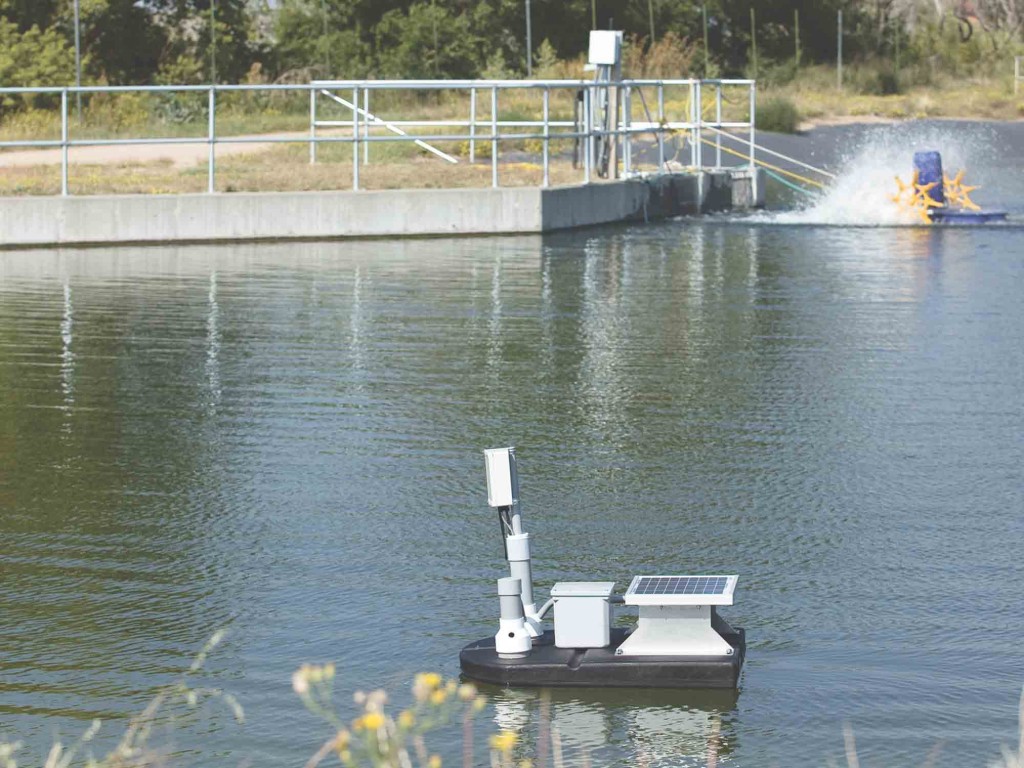At present, the relatively complete water quality online monitoring system can automatically and continuously measure multiple items, such as water temperature, chromaticity, suspended solids, pH, residual chlorine, turbidity, conductivity, dissolved oxygen, COD, ammonia nitrogen and other parameters. Allows analysts to grasp the changes in water quality in time. However, everyone knows that the accuracy of water quality parameters largely depends on the quality of the collected water samples. This is also important for online water quality monitoring, so today we will talk about the deployment method of the water quality online monitoring system.

1. Setting of sampling section of water quality online monitoring system
The arrangement of points and monitoring sections of the online water quality monitoring system must be able to reflect the water environment quality status of the water system or the area in general and macro. The specific location of each section must be able to reflect the pollution characteristics of the area where it is located; as few sections as possible are used to obtain sufficiently representative environmental information; at the same time, the feasibility and convenience of actual sampling must be considered. The location of the section should avoid dead water areas, backwater areas, and sewage outlets, and try to choose straight river sections, stable river beds, stable water flows, wide water surfaces, no rapids, and no shoals. The monitoring section strives to be consistent with the hydrological flow measurement section in order to use its hydrological parameters to realize the combination of water quality monitoring and water quantity monitoring.
For rivers, river systems or a certain river section, generally 3 types of cross-sections should be set:
(1) Comparative section: Refers to the section that is located upstream of all pollution sources in the area and can provide the background value of the water system area when judging the degree of pollution of the water environment in a certain area. Reflect the initial situation of the water quality of rivers entering the region. It is deployed in the upstream of the city and industrial sewage discharge area, and is not affected by the polluted area. Usually only one control section is set in a river section.
(2) Control section: refers to the section for understanding the degree of pollution of the water environment and its changes, that is, the section after receiving all industrial and domestic sewage from a certain city or region. The control section can reflect the influence of the pollution source in the area on the river section, and it should be installed downstream of the sewage outlet in the area, where the pollutants and the river water can be more fully mixed. According to the distribution of pollution sources along the river section, one or more sections can be set up.
(3) Reduction section: refers to the section where sewage flows through a certain distance in the water body to achieve maximum mixing, pollutants are diluted and degraded, and the concentration of its main pollutants is significantly reduced. Reflecting the dilution and self-purification of pollutants by the river, it should be set in the downstream of the control section, where the concentration of pollutants in the river water and pollutants is fully mixed and has a significant drop.
The setting of the number of monitoring sections should be based on the actual needs of grasping the quality of the water environment, considering the understanding and optimization of the temporal and spatial distribution and change of pollutants, and on the basis of optimization, to obtain the best representative monitoring data with the fewest sections, vertical lines and measurement points .
For the setting of sampling cross-sections for lakes and reservoirs, the sampling cross-sections should be determined according to specific conditions such as the number of rivers that enter the lakes and reservoirs, the seasonal and dynamic changes of water runoff, the distribution of coastal pollution sources, the law of pollution source diffusion and self-purification, and the characteristics of the ecological environment of the water body. s position.
2. Determination of sampling vertical line and sampling point of water quality online monitoring system
After the sampling section is set, the sampling vertical line on the section should be determined according to the width of the water surface, and then the location and number of sampling points shall be determined according to the depth of the sampling vertical line. The vertical line and sampling point settings of the river are shown in the figure below.



